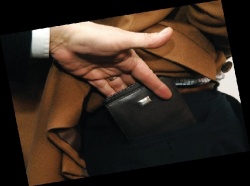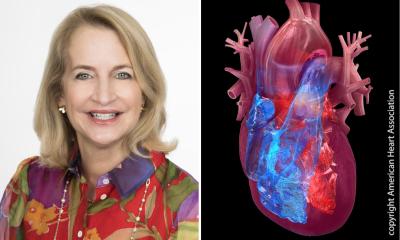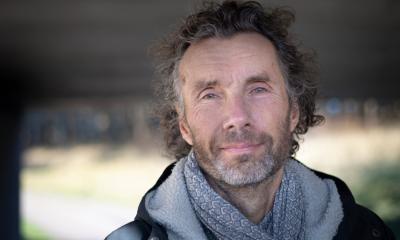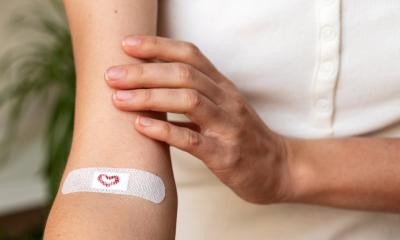Police advice for a safe stress-free Medica visit
Visiting an exhibition is exhausting enough – having luggage or a briefcase stolen is even worse. Opportunity makes the thief – and Medica is a great opportunity! With more than 130,000 people moving through narrow walkways some can become easy prey to thieves. The Düsseldorf police are advising visitors and exhibitors on safety: ‘Protect what is near and dear!’


In 2009, recounts Markus Niesczery, press officer at the Düsseldorf police headquarters, ‘… there were 71 criminal
complaints at Medica, mainly relating to theft and cons.’
Begin by leaving non-required valuables in the hotel safe, advises Kurt-Peter Schnabel, head of the Police Department of Prevention: ‘Of course, cars should not be seen as safes. Everything left visible in a car gives the impression that there is something to be had and encourages thieves to take a closer look. It also doesn’t help if the glove compartment is left open or the boot of an estate car left uncovered.’
Empty your vehicle before somebody else does it for you. Even navigation systems raise expectations, which is why the systems themselves should be removed as well as the brackets and windscreen suction mounts. Increasingly, the police are also seeing the theft of built-in navigation systems and electric wing mirrors. ‘That’s why you should look around at who else is there when on your way to Medica. If you see a suspicious person aimlessly walking past parked cars you should not be scared of calling 110. For reasons of privacy, multistory car parks only have video surveillance at entrances, and our uniformed and plain clothes colleagues can’t have their eyes everywhere. So we depend on active assistance!’ The Düsseldorf police now have a successfully high presence at Medica -- in 2009 no car was stolen and or theft from cars. This means that the criminal activities are increasingly shifting to stations or airports, where there are fewer police. ‘People are particularly stressed or distracted when on their way to the exhibition. Many have only just arrived and still have all their luggage with them,’
Markus Niesczery points out. ‘In 2009 alone we carried out eight arrests of organised criminals.’
If travelling to Medica on foot, be aware of the potential pickpockets as the crowds deepen. Superintendent Schnabel provides two vital prevention measures: ‘First, only take with you what you really need. Second, keep valuables as close to your body as possible.’ Thieves are really imaginative in their actions: They jostle, push and shove and often try to engage their victims in conversation. During the distraction, stolen items are already being passed on to accomplices, so that mobile phones, wallets and cameras are well away once the theft is noticed. Kurt-Peter Schnabel is particularly perplexed by the carelessness of some exhibitors; ‘Staff often leave their stands completely unmonitored. This almost borders on an invitation to people to help themselves, which is why laptops and other valuable exhibits should definitely be “chained”.’
Crowding is not something the Düsseldorf police can entirely avoid. However, over the years they have developed a fairly successful strategy to minimize jams and congestion. Four to six weeks before any major exhibition cooperation partners, from the event organisers, the train companies, the city, the airport, traffic patrol and police, meet to talk about the impending traffic issues. ‘We now have so much experience that coordination of individual traffic and public transport works smoothly,’ Niesczery says.
The police presence during Medica is split in three. Even before the exhibition traffic begins, traffic intelligence addresses the current traffic situation: Where could there be problems? Are any road works or traffic lights out of action? This is then followed by traffic monitoring during the exhibition. Should accidents, jams or technical problems arise, traffic monitoring starts by, for example, creating diversions. When all fails, police officers also take to the streets armed with safety vests and traffic paddles. Let’s hope it doesn’t come to that. Enjoy Medica!
Karoline Laarmann
15.11.2010





